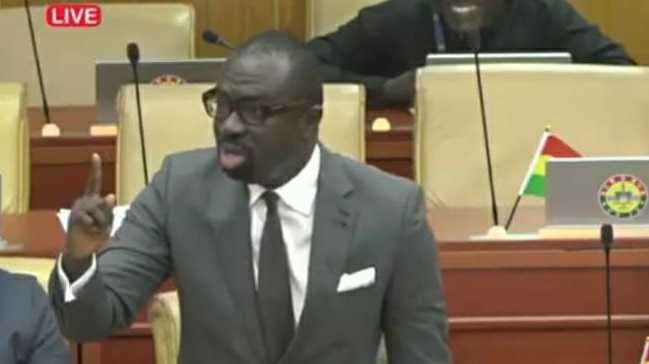The call for equal pay in Ghanaian football has taken center stage, with Member of Parliament for Manhyia South, Hon. Nana Agyei Baffour Awuah, championing the cause of the Black Queens, Ghana’s senior female national team. He argues that the team’s recent success at the Women’s African Cup of Nations (WAFCON), where they secured a commendable third-place finish and the bronze medal, underscores their merit and justifies equal compensation. The MP believes that their dedication, skill, and performance warrant a significant boost in bonuses and fees, bringing them on par with their male counterparts, the Black Stars. This advocacy aligns with the principles of the Affirmative Action Act, which seeks to address historical gender disparities and promote equality of opportunity.
The MP’s argument hinges on the idea that the Black Queens’ achievements should be met with commensurate recognition and reward. He emphasizes the need to close the existing pay gap between the men’s and women’s national teams, asserting that it is a matter of fairness and a reflection of the value both teams bring to Ghanaian football. The Black Queens’ recent triumph at WAFCON serves as a powerful testament to their potential and their growing stature in African women’s football. The bronze medal, achieved after a hard-fought victory against South Africa, highlights their resilience, determination, and their ability to compete at the highest levels. This success, according to the MP, should be a catalyst for change in the way female athletes are compensated.
The appeal for equal pay resonates with broader global discussions on gender equality in sports. Historically, women’s sports have often received less funding, media attention, and overall support compared to men’s sports, resulting in significant pay disparities. This inequality has been a subject of debate and activism, with athletes and advocates pushing for fairer treatment and recognition of women’s athletic achievements. The MP’s call aligns with this global movement, highlighting the need for Ghana to take a proactive stance in bridging the gender pay gap in football and setting a positive example for other nations.
The MP’s appeal to the Minister in Charge of Youth and Sports carries significant weight, as it comes from a respected figure within the government. His call for increased bonuses for the Black Queens is not just a plea for fairness but a strategic move to invest in the future of women’s football in Ghana. By providing better financial incentives, the government can attract and retain top talent, encourage greater participation at the grassroots level, and ultimately elevate the overall standard of the game. This investment in women’s football can also have positive social and cultural impacts, empowering young girls and women, promoting gender equality, and fostering national pride.
The Affirmative Action Act, invoked by the MP, provides a legal and ethical framework for achieving equal pay for the Black Queens. This act mandates proactive measures to address historical disadvantages faced by women and promote their full participation in all spheres of life, including sports. By referencing this act, the MP underscores the legal obligation to rectify the existing pay disparity and ensure that the Black Queens receive the compensation they deserve. This legal backing strengthens the argument for equal pay and provides a solid foundation for pursuing policy changes that will benefit female athletes.
The impact of achieving equal pay for the Black Queens could extend beyond the realm of sports. It could send a powerful message about Ghana’s commitment to gender equality and inspire other sectors to address similar disparities. By recognizing and rewarding the contributions of female athletes, the nation can create a more inclusive and equitable society. This move can also serve as a source of national pride, showcasing Ghana as a progressive nation that values the contributions of all its citizens, regardless of gender. Furthermore, investing in women’s sports can have positive economic benefits, creating new opportunities for women in coaching, administration, sports medicine, and related fields.


